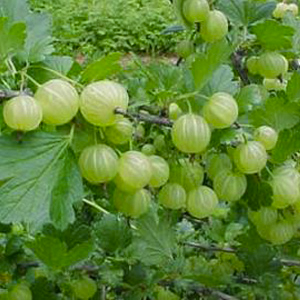The Indian Kino tree extract is also know as Pterocarpus marsupium, Malabar kino, vijayasar, benga, bijiayasal (in western Nepal), piasal (Oriya), and venkai. Pterocarpus marsupium bark is used as an astringent, anti-diarrheal, and antacid and is also effective in Pancreatic β-cell regeneration; the pancreas produces insulin. It has also been shown to have anti-diabetic and protective effect on serum protein, ALP and ACP, albumin levels and HbA1c. Pterocarpus marsupium is reported to be effective against several ailments including obesity, hyperlipidemia, anthelmentic, tumors and ulcers. It also has anti-inflammatory and antioxidative properties, and has been used for skin problems such as vitiligo, psoriasis, and eczema. In Vijaysar medicine, it has been used to improve hair strength and promote hair growth, reduce fat and cholesterol levels, and cell and tissue rejuvenation.
Diabetes is associated with abnormally high levels of sugar glucose in the blood, and can result from inadequate production of insulin (Type 1) or inadequate sensitivity of cells to the action of insulin (Type 2). Symptoms of diabetes include increased urine output, decreased appetite, and fatigue. Major complications of diabetes include elevated blood sugar, abnormally low blood sugar due to diabetes medications, and blood vessel disease which can damage eyes, kidneys, nerves, and heart. Hypertension, hyperlipidemia, hyperinsulinemia and atherosclerosis are often allied with diabetes. An NIH report estimates one person is detected with diabetes somewhere in the world every 5 seconds and someone dies from it every 10 seconds. The International Diabetes Federation estimated overall cost of treating diabetes worldwide at $490 billion by 2030. The World Health Organization (WHO) has substantiated the use of herbal remedies for diabetes management1.
If you are currently taking medication for diabetes and take Indian Kino Tree extract, you need to make sure to monitor your blood sugar carefully as the extract will affect your blood sugar level. Always consult your physician before taking any supplement that may affect your current medication(s).
Diabetes:
Halagappa K, Girish HN, Srinivasan BP. The study of aqueous extract of Pterocarpus marsupium Roxb. on cytokine TNF-α in type 2 diabetic rats. Indian Journal of Pharmacology. 2010;42(6):392-396. doi:10.4103/0253-7613.71922. https://www.ncbi.nlm.nih.gov/pmc/articles/PMC2991700/
Colagiuri R. Diabetes: A pandemic, a development issue or both? Expert Rev Cardiovasc Ther. 2010;8:305–9. http://www.tandfonline.com/doi/full/10.1586/erc.10.12
Chakravarty BK, Gupta S, Gambhir SS, Gode KD. Pancreatic β-cell regeneration. A novel antidiabetic mechanism of Pterocarpus marsupium Roxb. Indian J Pharmacol. 1980;12:123–7. https://www.researchgate.net/publication/261136358_Pancreatic_beta-cell_regeneration_-_a_novel_antidiabetic_mechanism_of_Pterocarpus_marsupium_Roxb
Gupta, R. and Gupta, R. S., Effect of Pterocarpus marsupium in streptozotocin-induced hyperglycemic state in rats: comparison with glibenclamide. Diabetol. Croat., 2009, 38, 39–45. https://www.google.com/url?sa=t&rct=j&q=&esrc=s&source=web&cd=2&ved=0ahUKEwiGgdn07rLQAhVHQyYKHQgOB9gQFgggMAE&url=http%3A%2F%2Fwww.idb.hr%2Fdiabetologia%2F09no2-3.pdf&usg=AFQjCNFSxyUQxIpy-tnBKPGS4AjqIrIvXg&sig2=0gdgh-DCQA65B8KpEyqOYg&bvm=bv.139250283,d.eWE&cad=rja
1)Noor A, Bansal VS, Vijayalakshmi MA. Current update on anti-diabetic biomolecules from key traditional Indian medicinal plants. Current science. 2013 Mar 25;104(6):721-7. http://www.currentscience.ac.in/Volumes/104/06/0721.pdf
Syed Ibrahim Rizvi and Neetu Mishra, “Traditional Indian Medicines Used for the Management of Diabetes Mellitus,” Journal of Diabetes Research, vol. 2013, Article ID 712092, 11 pages, 2013. doi:10.1155/2013/712092 http://downloads.hindawi.com/journals/jdr/2013/712092.pdf
J. K. Grover, V. Vats, and S. S. Yadav, “Pterocarpus marsupium extract (Vijayasar) prevented the alteration in metabolic patterns induced in the normal rat by feeding an adequate diet containing fructose as sole carbohydrate,” Diabetes, Obesity and Metabolism, vol. 7, no. 4, pp. 414–420, 2005. http://onlinelibrary.wiley.com/doi/10.1111/j.1463-1326.2005.00414.x/epdf
Cholesterol:
Jahromi MA, Ray AB. Antihyperlipidemic effect of flavonoids from Pterocarpus marsupium. J Nat Prod. 1993;56:989–94. https://www.researchgate.net/publication/14822328_Antihyperlipidemic_Effect_of_Flavonoids_from_Pterocarpus_marsupium
Weight Management:
H. R. Ambujakshi and S. Ganapaty, “Anti obese activity of Pterocarpus marsupium barks extract in experimentally induced obese rats,” Inventi Impact: Nutraceuticals, 2011. http://inventi.in/journal/article/impact/10/516/nutraceuticals/pi
Anti-Inflammatory:
S. Hougee, J. Faber, A. Sanders et al., “Selective COX-2 inhibition by a Pterocarpus marsupium extract characterized by pterostilbene, and its activity in healthy human volunteers,” Planta Medica, vol. 71, no. 5, pp. 387–392, 2005. http://repository.ubn.ru.nl/bitstream/handle/2066/48361/48361.pdf
